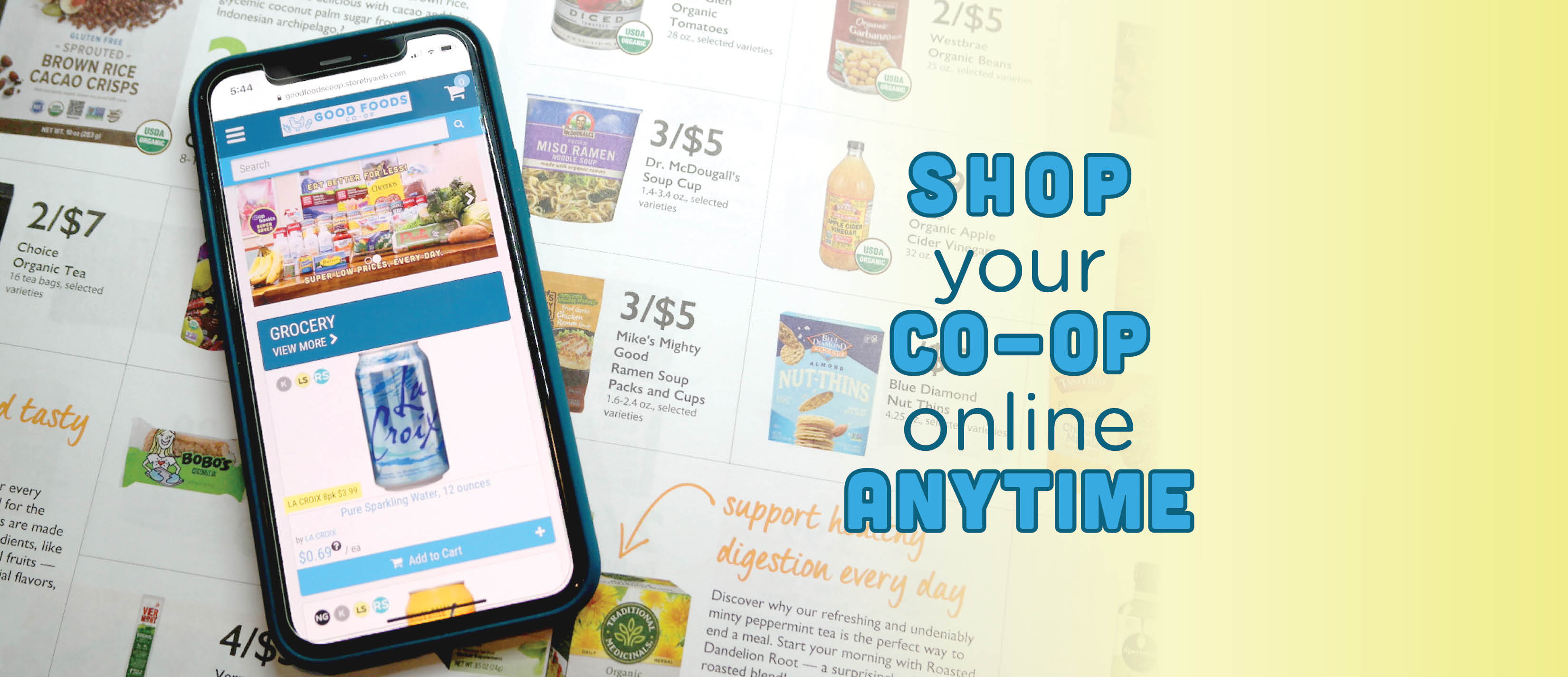It’s now been three years since your Board of Directors granted me the privilege to lead Good Foods Co-op following the retirement of long-time General Manager Anne Hopkins in 2014. In that time, Lexington has seen incredible change in the local grocery market, mirroring the industry trends occurring nationwide.
Euclid Kroger reopened shortly after I arrived. Lucky’s opened their doors a year later. Fresh Thyme came and unceremoniously went less than a year later. And most recently, Whole Foods opened the doors of their new store at the former site of Fritz Farm.

But as challenging as these new competitors have been for your co-op, nothing has changed the game quite like the advent of online grocery. Kroger’s ClickList, Walmart’s purchase of Jet.com and rollout of online pickup at over a thousand stores nationally, and—perhaps most importantly—the purchase of Whole Foods by Amazon have put co-ops nationally in a difficult competitive position. Beyond the immense competitive challenge of offering comparable services with far fewer resources at our disposal, the more serious issue we will soon face is the increased consolidation of our food system.
The thing to understand about Amazon is that they don’t simply compete in business ventures, they dominate them. And there seems to be no end to their appetite for taking over new industries. They’re likely coming for drug stores in the near future. They plan to take on the major sportswear brands. They plan to cut out distributors. Those are but a few examples on top of the dozens of other business ventures they’ve launched over the years.

When news of the Whole Foods deal hit, every single publicly traded company in the grocery market saw their stock price take a hit. Analysts generally know what it means when Amazon takes decisive action to enter an industry: it doesn’t end well for their competitors.
Of course, those competitors aren’t simply going to give up their market share. Kroger and Walmart are both investing heavily in their online platforms while simultaneously cutting back investment in new stores. Further mergers are likely ahead. Analysts predict that over 4000 grocery stores nationally will close in the next few years. Some of them undoubtedly will be co-ops. We are about to witness an intense war between the biggest players in the grocery industry, and the winner will emerge with an unprecedented level of control over our food economy, causing potentially significant collateral damage to retailers, producers, and farmers alike.

When you shop your co-op, you are making an important investment in your local community. You are supporting local farmers and small-batch producers that depend on you and the co-op for survival. You are helping to maintain and create jobs that are not beholden to the whims of a distant corporate headquarters. Ultimately, you are helping to create economic justice in the world.
That’s what the cooperative business model is, really—a recipe for economic justice. By investing in their local communities; by making the person they serve and the person that owns the business one and the same; and by returning their profits back to the same communities that sustain them, co-ops have the power to transform our economy into one that works for all of us. If every company you did business with was a cooperative, many of the tough issues facing our society—wealth and income inequality, corporate influence over politics, etc—would simply disappear.
If you want to see an economy based on justice and democracy, then I encourage you to shop your co-op. You have the power to potentially change the world. We’d like to help.
